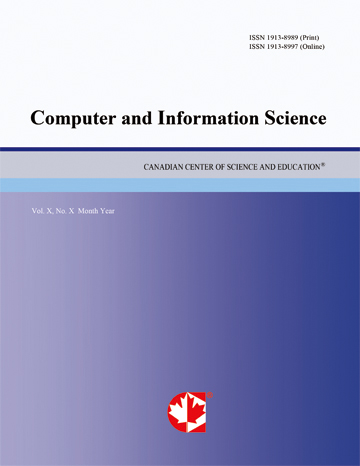Factors Influencing Interoperability Level Required for the Implementation of T-Government in Saudi Arabia
- Sameer Alshetewi
- Fahad Alturise
- Faten Karim
Abstract
Governments around the world have invested significant sums of money on Information and Communication Technology (ICT) to improve the efficiency and effectiveness of services being provided to their citizens. However, they have not achieved the desired results because of the lack of interoperability between different government entities. Therefore, many governments have started shifting away from the original concept of e-Government towards a much more transformational approach that encompasses the entire relationship between different government departments and users of public services, which can be termed as transformational government (t-Government). This implementation of t-Government requires a high level of interoperability between government organisations. In this paper, a model is proposed to explore and investigates the key factors that influence interoperability required for the implementation of t-Government in Saudi Arabian context from four key areas, namely, organisational, technological, political and social using institutional theory as a lens. This model was developed comprising the effect of six main constructs: technological compatibility, organizational compatibility, governance readiness, citizen centricity and e-Government program on interoperability required for the implementation of t-Government. The model factors, relationships, and hypotheses stemmed from the literature on Information Sharing, Information Integration, G2G, interoperability and t-Government models.
The results show that technological compatibility, organizational compatibility, and governance readiness have a positive impact on the interoperability required for the implementation of t-Government in this particular context. Unexpectedly, it indicates that citizen centricity has negative impact on the interoperability required for the implementation of t-Government. It also shows that there is a direct and positive impact from e-Government program (Yesser) to technological compatibility and governance readiness. Moreover, it shows that there is a direct and positive impact from citizen centricity to e-Government program (Yesser). Unexpectedly, the results indicate that e-Government program (Yesser) has no impact on the interoperability required for the implementation of t-Government. It also indicates that the e-Government program (Yesser) doesn’t affect organizational compatibility.
This paper provides a model for creating interoperability between government organisations to help e-Government officials and policy makers to identify the key factors that can affect the interoperability level required for the implementation of t-Government, and examines how these issues could be treated in practice. It also provides a guideline to researchers with regard to the impact of these identified factors on interoperability required for t-Government implementation.
- Full Text:
 PDF
PDF
- DOI:10.5539/cis.v11n2p40
Journal Metrics
WJCI (2022): 0.636
Impact Factor 2022 (by WJCI): 0.419
h-index (January 2024): 43
i10-index (January 2024): 193
h5-index (January 2024): N/A
h5-median(January 2024): N/A
( The data was calculated based on Google Scholar Citations. Click Here to Learn More. )
Index
- Academic Journals Database
- BASE (Bielefeld Academic Search Engine)
- CiteFactor
- CNKI Scholar
- COPAC
- CrossRef
- DBLP (2008-2019)
- EBSCOhost
- EuroPub Database
- Excellence in Research for Australia (ERA)
- Genamics JournalSeek
- Google Scholar
- Harvard Library
- Infotrieve
- LOCKSS
- Mendeley
- PKP Open Archives Harvester
- Publons
- ResearchGate
- Scilit
- SHERPA/RoMEO
- Standard Periodical Directory
- The Index of Information Systems Journals
- The Keepers Registry
- UCR Library
- Universe Digital Library
- WJCI Report
- WorldCat
Contact
- Chris LeeEditorial Assistant
- cis@ccsenet.org
